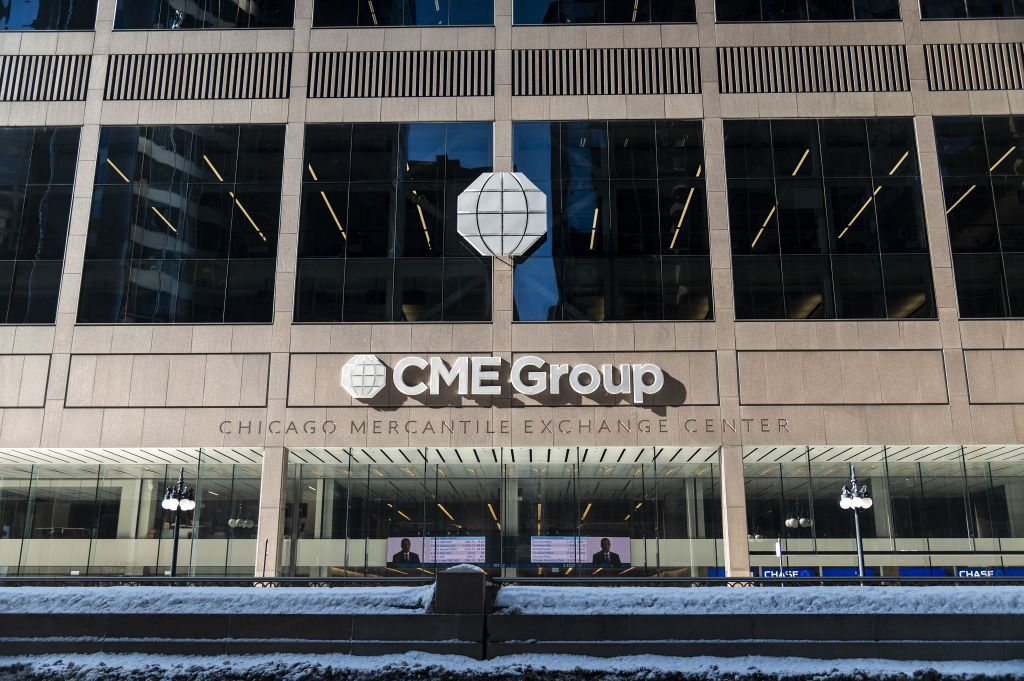How Corpay is cashing in on expenses
Financial technology company Corpay has found a profitable niche managing corporate payments


Get the latest financial news, insights and expert analysis from our award-winning MoneyWeek team, to help you understand what really matters when it comes to your finances.
You are now subscribed
Your newsletter sign-up was successful
Want to add more newsletters?

Twice daily
MoneyWeek
Get the latest financial news, insights and expert analysis from our award-winning MoneyWeek team, to help you understand what really matters when it comes to your finances.

Four times a week
Look After My Bills
Sign up to our free money-saving newsletter, filled with the latest news and expert advice to help you find the best tips and deals for managing your bills. Start saving today!
One of the problems with operating in a fastgrowing industry is that constant change and disruption can make it hard to remain successful. No sooner has a company developed a business model that is profitable than the technology shifts or competition pushes down prices. This causes margins or market share to tumble, since large amounts of investment are required to stay ahead of the competition.
So it’s often better to find a niche that is big enough to be worthwhile, but not so big as to attract a lot of other firms.
Financial technology company Corpay (NYSE: CPAY) has done just that. The firm specialises in corporate payments, including travel and hotel expenses as well as general vendor payments. These can be a nightmare for companies to manage, as giving too much latitude to employees can result in wasteful (or even fraudulent) spending.
MoneyWeek
Subscribe to MoneyWeek today and get your first six magazine issues absolutely FREE

Sign up to Money Morning
Don't miss the latest investment and personal finances news, market analysis, plus money-saving tips with our free twice-daily newsletter
Don't miss the latest investment and personal finances news, market analysis, plus money-saving tips with our free twice-daily newsletter
Yet on the other hand, micro-managing employees’ spending can sometimes backfire, increasing the need for outlay on administration, not to mention the risk of missing opportunities.
Corpay is keeping it simple
Corpay has developed several solutions that allow firms to keep things as simple as possible, while still ensuring that money is spent efficiently and companies can change their payments policy quickly. These solutions include automated systems as well as pre-paid cards.
Another touted benefit of Corpay’s offering is that it can function as a one-stop shop for business payments, eliminating the need to give employees cards from separate companies to deal with different types of payments.
This ambitious strategy has been a big hit with many businesses, as shown by the fact that Corpay’s revenue has grown by an average of around 15% a year since 2010.
Even though growth has slowed a bit in recent years, Corpay still managed to increase sales by around 50% between 2019 and 2024. It expects to keep growing, helped by plans to launch a service that can make it easier for firms to handle cross-border payments in multiple countries.
Margins remain strong with a consistent operating margin of over 40% and a return on capital employed of just under 20%. With last year’s earnings of $14.2 per share projected to rise 73% over the next two years, thanks to the effect of acquisitions and strong growth in the US and Brazil, Corpay trades at a relatively modest 14 times the consensus forecast for 2026.
As well as a business that is profitable and growing, Corpay’s shares seem to have a good amount of momentum behind them: they have gone up by 40% over the past nine months. They have also outperformed the rest of the US market over the last six months and trade above both their 50-day and 200-day moving averages.
I would therefore suggest that you go long at the current price of $368 at £8 per $1. You should also put the stop loss at $245, which gives you a total downside of £984.
This article was first published in MoneyWeek's magazine. Enjoy exclusive early access to news, opinion and analysis from our team of financial experts with a MoneyWeek subscription.
Get the latest financial news, insights and expert analysis from our award-winning MoneyWeek team, to help you understand what really matters when it comes to your finances.

-
 UK unemployment hits highest level since 2021 – will interest rate cuts follow?
UK unemployment hits highest level since 2021 – will interest rate cuts follow?UK unemployment reached its highest rate in almost five years by the end of 2025. Is AI to blame and will the Bank of England step in with an interest rate cut in March?
-
 Did UK inflation fall in January?
Did UK inflation fall in January?After rising in December, analysts expect the next round of UK inflation data to show that disinflation returned in January
-
 Should you sell your Affirm stock?
Should you sell your Affirm stock?Affirm, a buy-now-pay-later lender, is vulnerable to a downturn. Investors are losing their enthusiasm, says Matthew Partridge
-
 Profit from pest control with Rentokil Initial
Profit from pest control with Rentokil InitialRentokil Initial is set for global expansion and offers strong sales growth
-
 In the money: how my trading tips fared in 2025
In the money: how my trading tips fared in 2025The success of the open positions offset losses on closed ones, says Matthew Partridge
-
 Coreweave is on borrowed time
Coreweave is on borrowed timeAI infrastructure firm Coreweave is heading for trouble and is absurdly pricey, says Matthew Partridge
-
 Circle sets a new gold standard for cryptocurrencies
Circle sets a new gold standard for cryptocurrenciesCryptocurrencies have existed in a kind of financial Wild West. No longer – they are entering the mainstream, and US-listed Circle is ideally placed to benefit
-
 Profit from other investors’ trades with CME Group
Profit from other investors’ trades with CME GroupCME Group is one of the world’s largest exchanges, which gives it a significant competitive advantage
-
 Investors need to get ready for an age of uncertainty and upheaval
Investors need to get ready for an age of uncertainty and upheavalTectonic geopolitical and economic shifts are underway. Investors need to consider a range of tools when positioning portfolios to accommodate these changes
-
 How much gold does China have – and how to cash in
How much gold does China have – and how to cash inChina's gold reserves are vastly understated, says Dominic Frisby. So hold gold, overbought or not